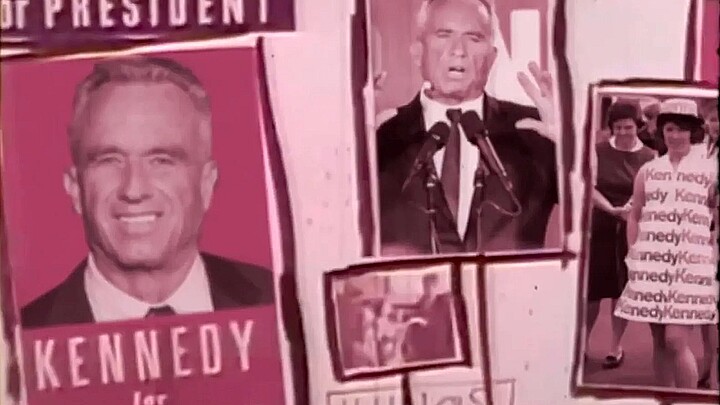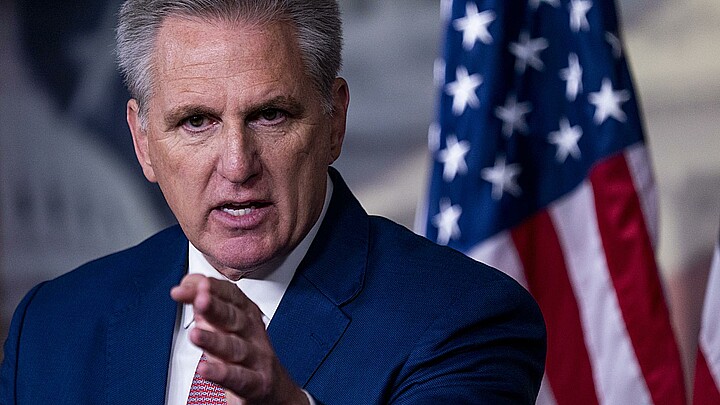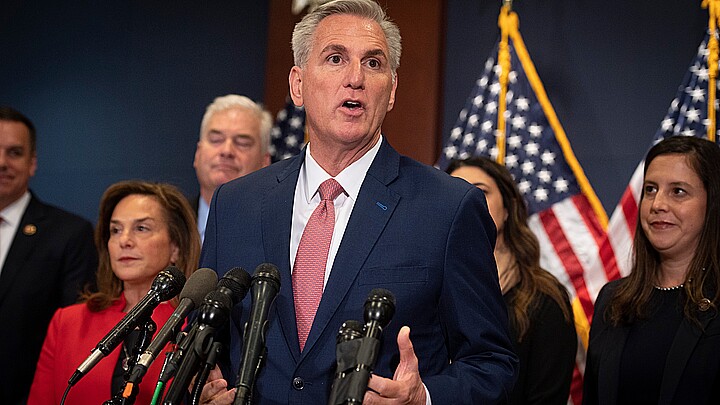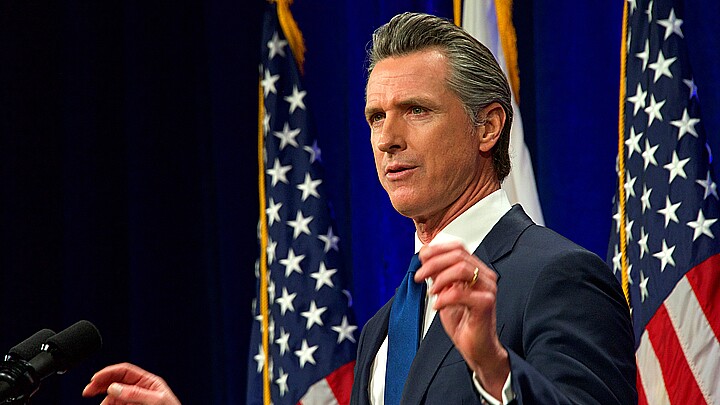Politics
Karen Bass and Cuba's Venceremos Brigade: Controversial history resurfaces amid criticism over L.A. Fire Dept. cuts
The former U.S. congresswoman turned Los Angeles mayor played a significant role with the Venceremos Brigade —a group linked to Cuba's communist regime
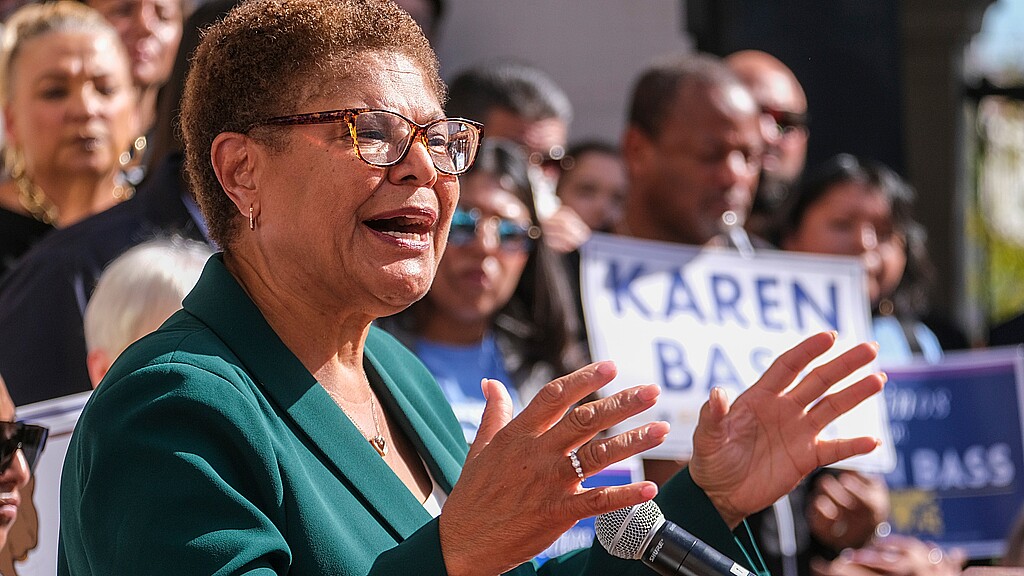
January 10, 2025 9:31pm
Updated: January 10, 2025 9:42pm
Los Angeles Mayor Karen Bass is facing criticism over the timing of her recent overseas trip to Ghana, and budget cuts that hampered the city's fire department from doing its job amid the ongoing citywide blaze. The mayor’s poorly timed foreign travel has raised questions about her priorities and similar past trips.
One of the most interesting chapters of Bass’ political career and international travel involves her past excursions to communist Cuba. The former U.S. congresswoman turned metropolitan mayor played a significant role with the Venceremos Brigade —a group linked to Cuba's communist regime.
History of the Venceremos Brigade
The Venceremos Brigade, founded in 1969, is a U.S.-based organization that has facilitated trips for Americans to Cuba in defiance of U.S. travel restrictions. The group was formed by young activists in solidarity with the Marxist-Leninst Cuban Revolution, aiming to challenge U.S. policies toward Cuba, including economic sanctions—referred to as the “blockade” in alignment with Fidel Castro’s rhetoric—and travel bans.
During the past 56 years, the Venceremos Brigade has helped coordinate the travel of nearly 10,000 Americans to the communist island, according to reports from Cuban state media.
On its official website, the Venceremos Brigade lists five “points of unity”:
- Belief in Cuba’s sovereignty and right to self-determination.
- Support for the constitutional right of U.S. citizens to travel freely.
- Commitment to international solidarity and struggle.
- Advocacy for equity and justice against capitalism, racism, patriarchy, and colonialism.
- Recognition that “people are not disposable.”
The Brigade started their missions by volunteering U.S. students to help Cuban laborers work in sugarcane fields. However, reports published by U.S. government agencies and Congress say the missions have been used by the Cuban regime as a gateway to collect data on Americans and U.S. public officials.
A Feb. 26, 1982 report published by the U.S. Senate confirms that shortly after its formation, “the DGI [Cuban intelligence] quickly began tasking VB members to collect public information on prominent Americans. This was done to conserve Cuban resources, maximize Havana’s collection of open-source material, and to test a VB member’s degree of support.
The DGI found telephone books to be an especially useful item, as the books could identify and verify the identity of high-interest personnel. VB members also provided considerable details on U.S. Congressional members, staff, and their relatives.”
While it has collected data on members of Congress, the aforementioned 1976 FBI report cited by the New York Times says the DGI’s real interest in the Brigade, “is the recruitment of individuals who are politically oriented and who someday may obtain a position, elective or appointive, somewhere in the U.S. government, which would provide the Cuban government with access to political, economic and military intelligence.”
In Spanish, “Venceremos” means “we shall overcome,” a popular Marxist revolutionary slogan that has been used by radical leftist organizations throughout Latin America since the late 1960s. It has also been incorporated into the most (in)famous Castro “revolution” slogan, which was/is “Patria o muerte! Venceremos!”
Since its inception in 1969, the Venceremos Brigade took aim at influencing Americans interested in politics, particularly those with a sympathetic ear. In 1977, the New York Times revealed details from an August 1976 FBI report that found Cuban intelligence agents “arranged for American youths to be inculcated with revolutionary fervor and, occasionally, to be trained in practical weaponry by Cuban military officers through the so‐called Venceremos Brigade.”
The report specifically identified one of the groups as the Weather Underground, an armed radical leftist collective described by the FBI as a “domestic terrorist group,” that committed 25 bombings, among them, at the Pentagon, U.S. Capitol, California Attorney General’s Office, and NYPD during the 1970s. As part of an interview with the FBI, the New York Times reported that a limited number of Brigade members were also trained in guerrilla warfare techniques, “including the use of arms and explosives.”
Controversial Connections and ICAP
When Venceremos Brigade delegation arrive in Cuba, they are hosted by the Institute of Friendship with the Peoples (ICAP), an organization closely tied to the Cuban government. ICAP is led by Fernando González Llort, a former member of the Wasp Network, a group of Cuban spies convicted in the United States for espionage. In an exclusive interview with ADN America, former Cuban intelligence officer Enrique García Díaz confirmed that ICAP plays a dual role: officially promoting solidarity while covertly supporting Cuban intelligence operations.
A 1983 report by the New York Times quoted a former ICAP director who acknowledged that the organization had an intelligence-gathering role linked to the Directorio General de Inteligencia (DGI), Cuba's main intelligence agency. García Díaz further explained that ICAP’s function was to establish contact with Western-based “solidarity movements” and provide moral and financial support to targeted activist groups in an effort to influence public opinion and politicians in the U.S. and Latin America.
Garcia Diaz confirmed that assertion directly to ADN America, saying that once potential targets are recruited, Havana explores how to utilize those individuals' positions in American society.
“Later, they are projected (once recruited) against targets of interest. If, for family reasons or personal characteristics, they had the potential to penetrate government or political institutions, they are guided to moderate their radical public positions so they could (can) better integrate themselves for the future (as was done with [convicted Cuban spy] Ana Belén Montes),” he said.
Chris Simmons, a former Defense Intelligence Agency operative who played a key role in exposing Cuban spies in the U.S., told ADN America that any interaction between ICAP and U.S. officials or their families should raise concerns, given the organization's history of intelligence-gathering.
Bass and the Brigade
In the 1970s, Bass participated in the Venceremos Brigade, traveling to Cuba as a young political activist. She was described as a leader of the group in a 1975 communist publication, according to Politico, although her office has denied she ever had that role.
In fact, according to a report published by Tablet Magazine, Bass led the movement's Southern California operations. In fact, an October 1975 edition of the communist Daily World newspaper described Bass as the “leader of the Venceremos Brigade in southern California.”
Another Ph.D. dissertation documented her as “a 'brigadista' and then organizer for the Venceremos Brigades,” saying “Karen visited Cuba every 6 months.”
Bass has stated that her involvement was driven by a desire to build relations between the American and Cuban people, and she has expressed admiration for aspects of the Cuban dictatorship social policies.
U.S. Legislators Linked to the Venceremos Brigade
Several current and former U.S. lawmakers have also been linked to the Venceremos Brigade. According to Reason Magazine, prominent Democratic figures include:
- Gregory Meeks (D-NY), Congressman from New York.
- Barbara Lee (D-CA), former Congresswoman from Northern California.
- Bill Delahunt (D-MA), former Congressman from Massachusetts.
- Leon Panetta (D-CA), former Congressman from California, who later served as Secretary of Defense and Director of the CIA.
- Chris Dodd (D-CT), former Senator from Connecticut.
- Tom Harkin (D-IA), former Senator from Iowa.
Other Prominent Figures Affiliated with the Brigade
Over the years, numerous left-wing academics, activists, and political figures have been affiliated or traveled with the Venceremos Brigade, including:
- Antonio Villaraigosa (D), former Mayor of Los Angeles, who also traveled to Cuba with the Brigade.
- Karen Nussbaum, prominent labor union official and Clinton administration appointee.
- Johnnetta Cole: College president and museum executive.
- Michael Kazin: Historian, professor, and co-editor of Dissent magazine.
- Michael Ratner, former president of the Center for Constitutional Rights.
- Julia Bernal, director of Pueblo Action Alliance, who traveled with the group to Cuba in 2019.
- Susan Rosenberg, a former member of the domestic terrorist group May 19th Communist Organization
- Calla Walsh, former Disney actress and co-chair of the National Network on Cuba (NNOC) has also traveled to Cuba with the VB. Walsh was arrested last year for attacking the offices of an Israeli company in New Hampshire. The former Disney actress and her associates were recently indicted in February by the New Hampshire Justice Department for spray-painting the building, smashing windows, and setting off incendiary devices.

